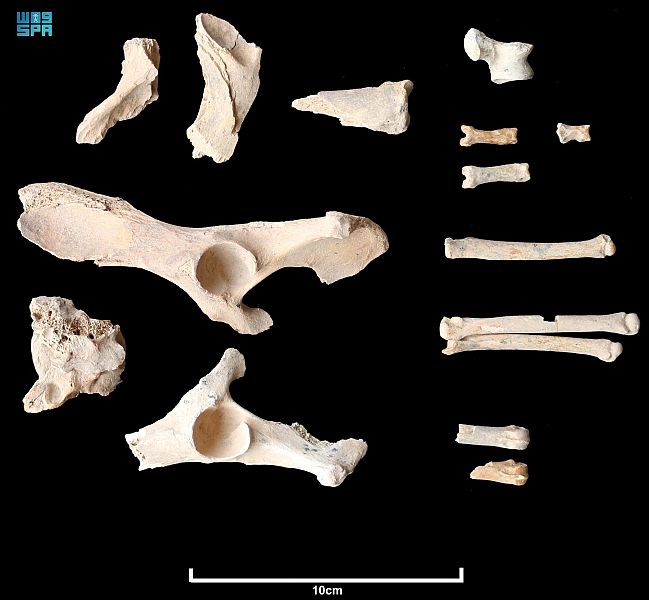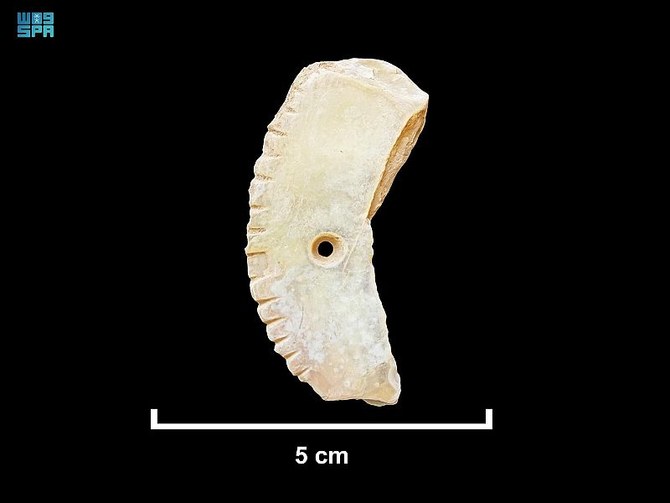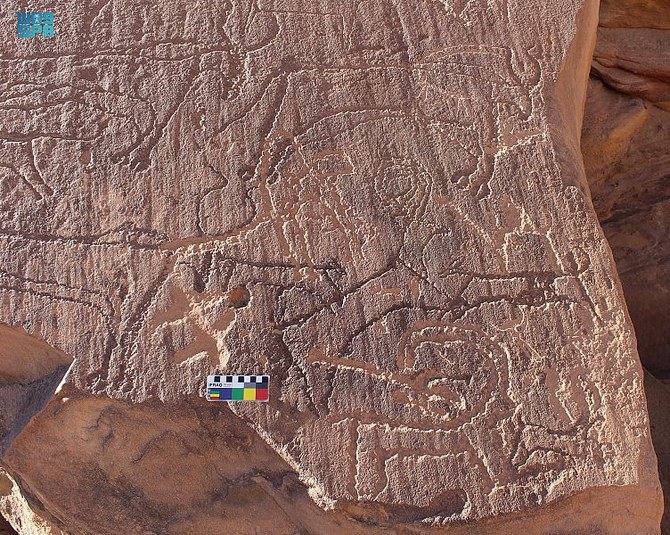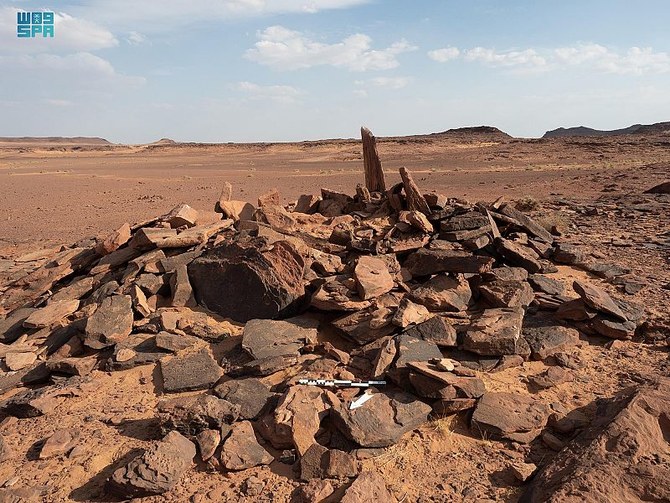LONDON: A team of archaeologists has discovered the oldest evidence that dogs coexisted with humans in the Arabian Peninsula.
Researchers have found bones belonging to a dog in a burial ground in AlUla, northwest of Saudi Arabia, which is one of the oldest burial grounds identified in the Kingdom.
“Evidence indicates that the oldest use of the burial ground was around 4300 BC and the ground continued to be used for more than 600 years during the Neolithic-Chalcolithic period,” a statement issued on Saudi Press Agency said.
It added that it is the oldest evidence that dogs coexisted with the ancient inhabitants of the region in the Arabian Peninsula.
The discovery was found through a comprehensive archaeological survey and excavation along with existing research and exploration projects in the province by the Royal Commission for AlUla.
The project’s joint team, which included Saudi, Australian and European researchers, focused their efforts on two above-ground burial sites dating back to the 5th and 4th millennium BC, located 130 kilometers apart. One of the sites is located in the basalt volcanic uplands of AlUla, while the other in the historic city’s badlands.
“The two sites were above ground in earlier periods, which is unique in the history of the Arabian Peninsula,” the statement said.
The team discovered the sites using satellite imagery and then aerial photography from a helicopter. It began fieldwork in late 2018.
This mother-of-pearl pendant, from a Neolithic-Chalcolithic tomb in the basalt volcanic uplands of AlUla in NW Saudi Arabia, is leaf-shaped with a single pierced hole & incised decoration. As yet, no direct parallels of that era have been identified for the pendant in NW Arabia. pic.twitter.com/Nycj3WSOzF
— الهيئة الملكية لمحافظة العلا (@RCU_SA) March 24, 2021
Melissa Kennedy, assistant director of the Aerial Archaeological Survey in AlUla, said: “Our findings will bring about a paradigm shift in the way we look at periods, such as the Neolithic period in the Middle East.”
Kennedy said information, such as the time period used for family burials for hundreds of years, is a recent matter in terms of scientific discoveries about the Neolithic period in the Arabian Peninsula.
Hugh Thomas, the director of the Aerial Archaeological Survey in AlUla, said: “The archaeology of AlUla is the starting point that will contribute to revealing the extent of its importance to the stages of human development in the Middle East.”
The team also found 26 pieces of dog bones at the first site in the volcanic highlands, along with bones from 11 people; including six adults, an adolescent and four children.
The team said the presence of this living creature was so important to the life of its owner that they were buried with them when they died.
After collecting the bones, the team noticed symptoms of arthritis on the dog’s bones, indicating that it lived among humans until mid or old age.
By analyzing one bone in particular, the team’s animal archaeologist was able to prove that the bone belonged to a dog, from the animal’s left front leg. The width of the bone was 21.0 millimeters, which falls within the range of sizes of other ancient Middle Eastern dogs. In comparison, wolves had the same width of bone at that time and ranged from 24.7 to 26 mm.

The team also found 26 pieces of dog bones at the first site in the volcanic highlands, along with bones from 11 people; including six adults, an adolescent and four children. (SPA)
Rock art found in the area indicated that Neolithic people used dogs to hunt ibex, wild donkeys, and other animals.
The field team also discovered other notable artifacts, including a leaf-shaped mother-of-pearl pendant, from a Neolithic-Chalcolithic tomb in the volcanic uplands site and a bead at the arid badlands site.
The researchers expect more results in the future in the region within the archaeological aerial survey project in AlUla, as they regard it as a “largely unexplored area located in a part of the world that contains an ample archaeological stock of outstanding scientific value.”
The findings will be published in the Journal of Field Archaeology.
The Discovery Channel will also broadcast a new program on ancient architecture in the Arabian Peninsula, which will start on March 31, and will explore the archaeological evidence subsequently discovered in the region.
This comes as part of the commission’s commitment to highlighting the history, heritage and nature of AlUla.
“This discovery also strengthens the vision of AlUla, to be an open museum, in line with the goals of the Kingdom’s Vision 2030 in reviving heritage sites and monuments, which strengthens the Kingdom’s prominent position on the map of human civilization,” the statement said.




















